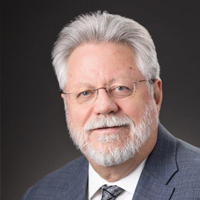
As there is anchoring bias regarding personal estimates of longevity, there is also anchoring bias in retirement planning. As we know, the average retirement age is within a stone’s throw of initial eligibility of Social Security, just before age 62. In addition to thinking about retirement ages in their family of origin, people’s anchoring bias is driven by the ability to collect Social Security benefits.
Many retire early — some because they are financially independent and others because they have to. Many people keep working past age 65, anchoring their retirement to Medicare and picking up a higher monthly Social Security check. Financial advisors help people make these decisions and are well aware of a majority of clients who happily check out of work for the last time, most often between age 62 and 66.
Speaking of checking out of work for the last time, like their clients, many financial advisors are also thinking ahead toward to their own retirement — in their 60s.
Last December, Kiplinger posted an article by David Rodeck titled “Your Financial Advisor Wants to Retire, Too.” And they can. Many financial advisors who are in their late 50s and early 60s are already financially independent. They don’t have to work and, for many, a Social Security check would just be “icing on the income cake.”
There are a number of reasons that financial advisors seek to retire in their 60s but the main reason is likely similar to their clients: A preconscious anchoring bias that has been in place for decades. Financial advisors’ grandparents retired in their 60s. Their parents retired in their 60s. Their clients are retiring in their 60s. They think they should also retire in their 60s.
Last year, RIAIntel posted this heading to an article by Michael Thrasher: “The Wave of Advisor Retirements Is About to Break.” Thrasher quotes Cerulli Associates, which estimates more than 111,500 will retire over the next decade — more than one-third of the workforce.
That is shocking. That is a lot of advisory wisdom and experience that will be riding off into the sunset. It doesn’t have to be this way. Advisors can choose to overcome their anchoring bias and stay in the profession through their 60s and beyond.
There are two simple ways for advisors to overcome anchoring bias with respect to their own retirement.
First, financial advisors can reflect on the coming Longevity Revolution. The title of this website has it right: It’s time to rethink 65. Age 65 can be considered youthful in terms of what is coming in geroscience. On the web site of The Buck Institute, pioneers in the study of aging, their researchers say, “We believe it is possible for people to enjoy their lives at 95 as much as they do at 25, and to achieve that, we’re seeking a more comprehensive understanding of the biology of aging itself.”
If in the not-too-distant future, 95 feels like 25, why retire at 65? Indeed, now is the time for financial advisors to rethink 65 for themselves. Now is the time to rethink when they should retire. Warren Buffett rethought 65 back in 1996. He thought he would keep working. At age 90, he still is. Like Warren Buffett, you can keep working in the financial world, too.
Perhaps you don’t want to work until age 90, but how about age 70? 75? 80? Apart from anchoring bias toward your early to mid-60s and given the potential leap in healthy longevity, how long would you actually like to work?
In addition to a coming leap in healthy longevity, one’s job satisfaction is an important source of reflection for overcoming retirement anchoring bias. Job satisfaction is a great source of personal happiness for most financial advisors. They are happy interacting with their clients. They are happy interacting with others in their office. They are happy with their broker-dealer and participating in annual gatherings. They are happy studying and keeping up with financial planning, the markets, and the economy.
Why surgically remove this great source of personal happiness in your life by retiring in your 60s? If you are happy doing what you are doing, keep doing it!
Beyond job satisfaction and the personal happiness it delivers, there is also a mission to serve others with your wisdom and experience. The country needs what you do. As the trailing edge of the large baby boomer generation is in their late 50s, good financial planning and investment management is needed now more than ever just at the time that financial advisors are about to retire in sizable numbers. Nobody can do advisory work better than those with decades of wisdom and experience who are willing to stay in the profession.
As I mentioned in my first column, I turned 65 last month. I’ve been rethinking 65 for quite some time. Back in 2002, at age 46, I “retired young” from the pastoral ministry and became a financial advisor. Retirement is behind me, not ahead of me. Lord willing, my best decades as a financial professional are ahead of me. That’s right: decades. I appreciated Jerilyn Klein’s article in Rethinking65 about 82-year-old Richard Wendin who is still serving as a financial advisor. That’s the spirit!
I wish there were tens of thousands more advisors like Dick Wendin, more advisors who like what they do and are on a mission to keep doing it through their 60s and beyond. Then our profession wouldn’t be facing a demographic cliff of cascading retirements in the coming years. The people of this country need what we do and there are not enough younger people coming into the profession to replace one third of our workforce.
Therefore, financial advisors who enjoy serving their clients, who enjoy the people they work with, and who enjoy the intellectual challenges of what they do should be encouraged to overcome anchoring bias of retirement in their 60s and “stay the course.”
One of these years my wife will retire. She is “on board” with my desire not to retire. To be sure, as Minnesotans who get sick of winter, we’ll spend more time in someplace warm; probably in Florida. I’ll take my computer with me and I’ll work wherever I go. Zoom works well and there is always the telephone. Yes, I’m 65; but whether I’m home here in Minnesota or elsewhere, there is no reason for me to stop doing the work that I love.
How about you?
Bradley Jenson, CFP®, CIMA®, AIF®, is a financial advisor with Duluth, Minn.-based Lake Superior Financial Services, Inc., which offers investment advisory services through Raymond James Financial Services, Inc. He is a coauthor of the forthcoming book “Joining the Longevity Revolution: For Advisors and Clients,” which is expected to be in print in 2022. Brad is also an ordained minister. He can be reached at 218-625-2430. Any opinions are those of Brad and not necessarily those of Raymond James.







